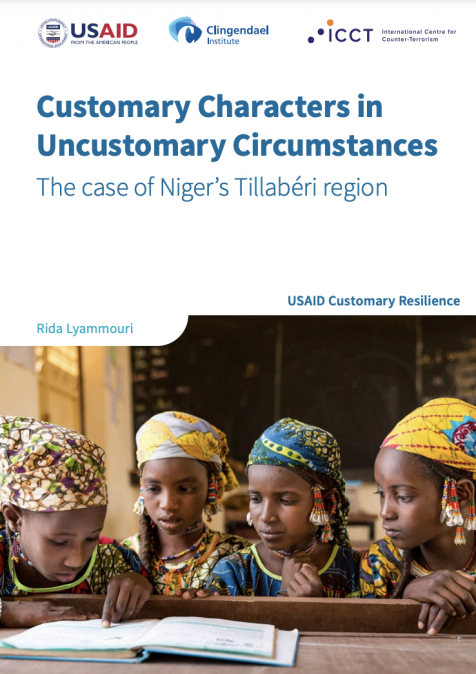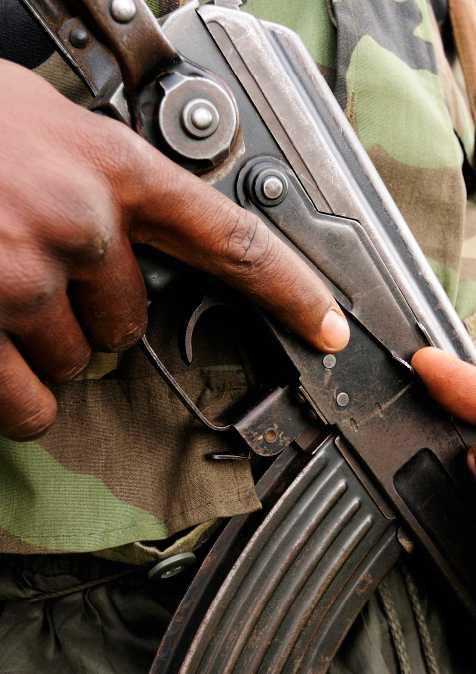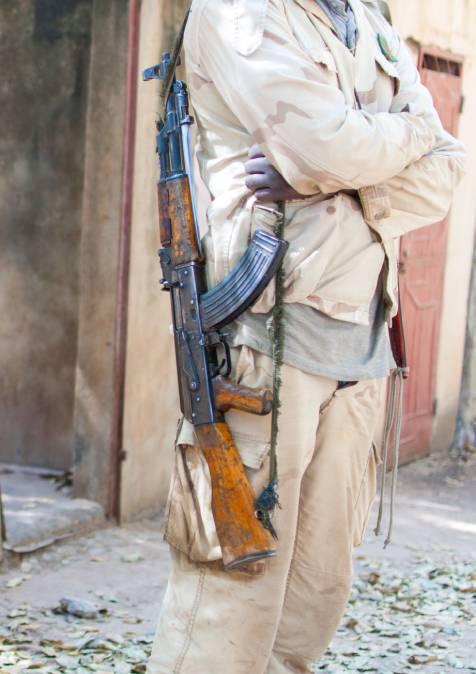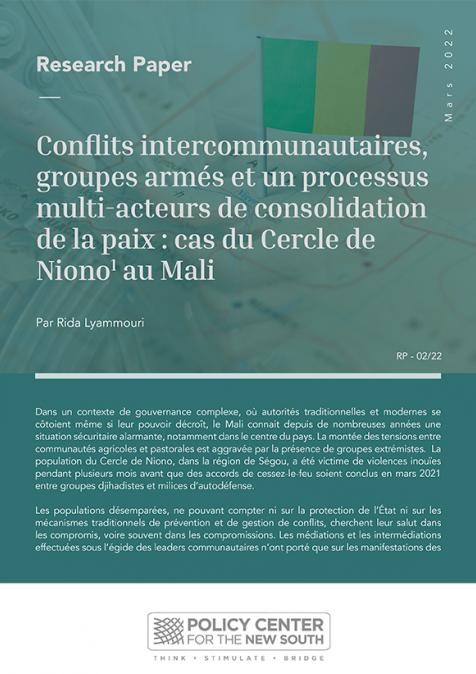Dr. Norman Sempijja, an Associate Professor at Mohammed VI Polytechnic University, explores the conflicts in the Lake Chad Basin region, which includes Nigeria, Cameroon, Niger, and Chad. These countries experience some of Africa's most severe conflicts, significantly impacting the region. In his forthcoming paper, “The Effect of Lake Chad Basin Conflicts on the Study of Civil War,” Dr. Sempijja offers valuable insights into the distinctive dynamics and challenges of this area, contributing to a deeper understanding of the conflicts in the Lake Chad Basin.
RELATED CONTENT
-
July 20, 2022كانت سنة 2021 سنة اضطراب جيو-سياسي وانقلاب جيو-اقتصادي عالميين. ومع تزايد زخم الأحداث، دخل العالم فترة تحول جيو-سياسي وجيو-اقتصادي تعلن نهاية دورة تاريخية وتُنبِّؤ بآفاق غير مؤكدة لدورة جديدة. وعليه، فإننا من الآن فصاعداً أمام تغير عالمي حقيقي ينطوي على نقاط ضغط متعددة وقوىً دافعة جيو-س...
-
June 30, 2022In this episode of Africafé, Rida Lyammouri will talk about the ongoing conflicts in the Sahel, evoking the instability in Mali and Burkina Faso and suggests ways forward for greater engagement from the international community in helping fragile states in the region. ...
-
-
 AuthorsLaura SandersMay 12, 2022An HRW report details the massacre of at least 300 civilians in the central Malian town of Moura — the deadliest single atrocity in the country’s decade-long armed conflict. Most of the victims were from the Peuhl ethnic group. The widespread political and social exclusion of the Peuhl puts them at further risk of this type of violence and drives a cycle of grievances and fear that empowers violent extremist organizations (VEOs) and impedes peacebuilding. National governments and in ...
AuthorsLaura SandersMay 12, 2022An HRW report details the massacre of at least 300 civilians in the central Malian town of Moura — the deadliest single atrocity in the country’s decade-long armed conflict. Most of the victims were from the Peuhl ethnic group. The widespread political and social exclusion of the Peuhl puts them at further risk of this type of violence and drives a cycle of grievances and fear that empowers violent extremist organizations (VEOs) and impedes peacebuilding. National governments and in ... -
Nihal El Mquirmi & Helmut SorgeMarch 25, 2022The debate around the use of private military and security companies is deeply polarized, with some authors portraying such military contractors as ‘messiahs’, praising their efficiency i ...
-
 AuthorsMarch 16, 2022Of all the regions included in this report series, Tillabéri is the region that scores best when it comes to both general community resilience, as well as traditional and religious authorities’ functioning. The region is not as exposed to shocks as Est (Burkina Faso) and Ménaka (Mali), and its ability to recover from shocks is high compared to the other regions. Trust in traditional and religious authorities is comparatively high as is their equal treatment of different subgroups in ...
AuthorsMarch 16, 2022Of all the regions included in this report series, Tillabéri is the region that scores best when it comes to both general community resilience, as well as traditional and religious authorities’ functioning. The region is not as exposed to shocks as Est (Burkina Faso) and Ménaka (Mali), and its ability to recover from shocks is high compared to the other regions. Trust in traditional and religious authorities is comparatively high as is their equal treatment of different subgroups in ... -
March 9, 2022The Global Terrorism Index (GTI) is an annual report produced by the Institute for Economics & Peace (IEP). Now on its 9th edition, the GTI provides a comprehensive summary of the key global trends and patterns in terrorism. It analyses a number of vital aspects of terrorism such as...
-
 AuthorsMarch 7, 2022More than two years ago I wrote in a report: “The current downward security trends in Mali, Niger, and Burkina Faso should serve as a wake-up call for the states in the Gulf of Guinea, mainly Ivory Coast, Ghana, Togo, and Benin.” Recent attacks in the northern Ivory Coast and Benin show that signs of earlier years now have taken on unique characteristics. Signs of the expansion of violent extremist organizations (VEOs) to coastal states have been there since at least since 2015. The ...
AuthorsMarch 7, 2022More than two years ago I wrote in a report: “The current downward security trends in Mali, Niger, and Burkina Faso should serve as a wake-up call for the states in the Gulf of Guinea, mainly Ivory Coast, Ghana, Togo, and Benin.” Recent attacks in the northern Ivory Coast and Benin show that signs of earlier years now have taken on unique characteristics. Signs of the expansion of violent extremist organizations (VEOs) to coastal states have been there since at least since 2015. The ... -
AuthorsMarch 1, 2022Dans un contexte de gouvernance complexe, où autorités traditionnelles et modernes se côtoient même si leur pouvoir décroît, le Mali connait depuis de nombreuses années une situation sécuritaire alarmante, notamment dans le centre du pays. La montée des tensions entre communautés agricoles et pastorales est aggravée par la présence de groupes extrémistes. La population du Cercle de Niono, dans la région de Ségou, a été victime de violences inouïes pendant plusieurs mois avant que de ...
-
 AuthorsFebruary 28, 2022This article was initially published on usip.org The presence of CBAGs raises issues that force a rethink of local implementation of peacebuilding processes. The RESOLVE Network’s multiyear research on Community-Based Armed Groups (CBAGs) has established critical findings for the international community on how to engage, manage and transform violent actors in conflict-affected states. While mitigation efforts tend to target anti-state extremist org ...
AuthorsFebruary 28, 2022This article was initially published on usip.org The presence of CBAGs raises issues that force a rethink of local implementation of peacebuilding processes. The RESOLVE Network’s multiyear research on Community-Based Armed Groups (CBAGs) has established critical findings for the international community on how to engage, manage and transform violent actors in conflict-affected states. While mitigation efforts tend to target anti-state extremist org ...




